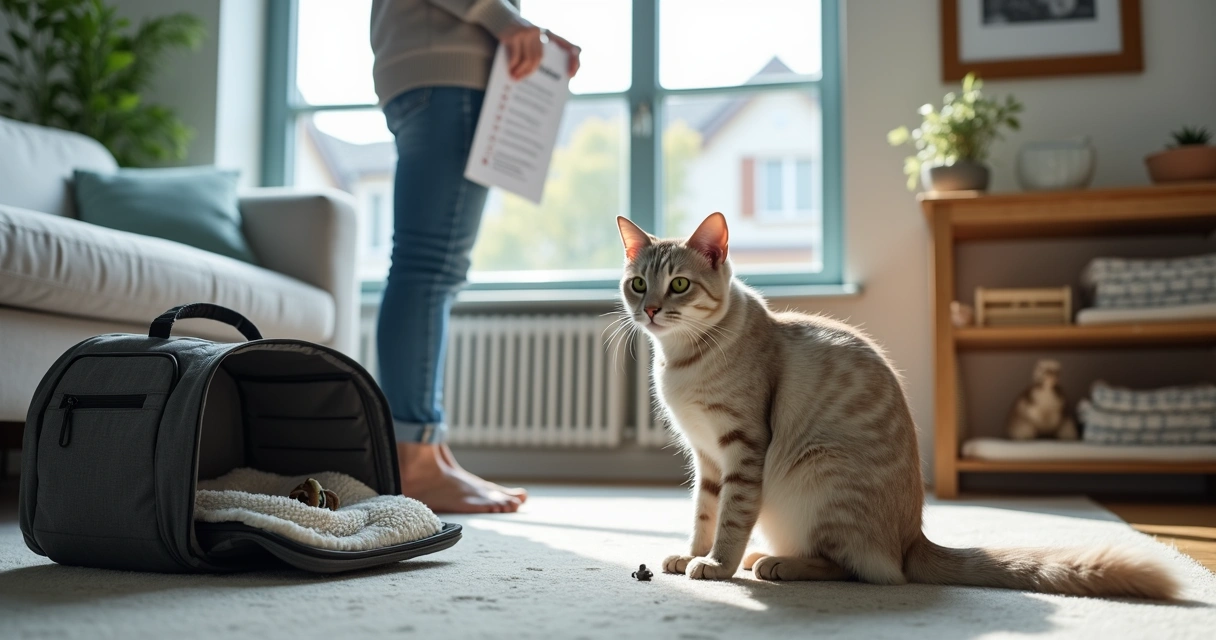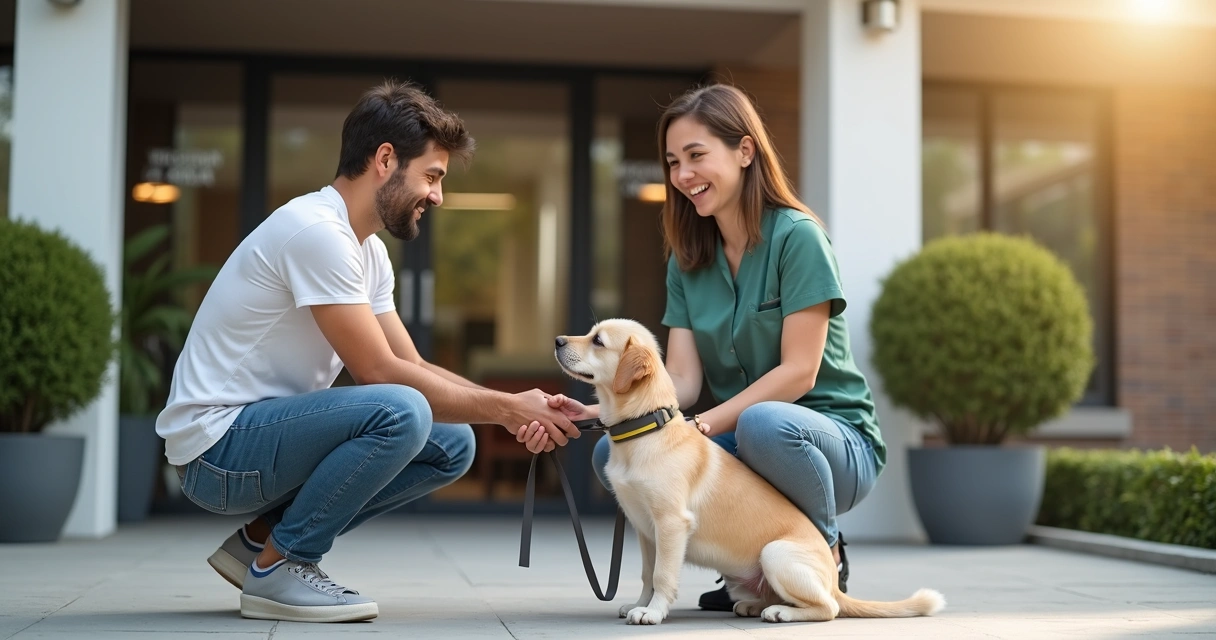Holiday travel can be stressful enough without worrying about your pets. Over the years, I've watched dozens of families fret about how their furry friends will handle boarding when winter brings a flurry of plans. As someone invested in the small moments that make our animals feel secure, I find there’s a certain rhythm to preparing a pet for boarding that calms everyone’s nerves, mine included. Let me share my personal checklist and a few stories, drawn from experience and the research I trust.
Why planning early matters more than ever
I’ve seen trends shift in pet care, and if you check the U.S. Bureau of Labor Statistics, revenue in pet care has soared, especially during holidays. Pet boarding now makes up nearly half the spending on pet care services—demand is high, and spots go quickly.
Booking your pet’s boarding well in advance isn’t just smart, it’s sometimes necessary if you want peace of mind. In 2026, facilities like Dogtown get booked up fast for the holidays, as owners seek out spaces that treat animals as individuals.
Choosing the right boarding environment
Not all boarding facilities are the same—I've seen dogs thrive in one place but become anxious in another. When I first toured Dogtown in Gloucester, MA, it felt different. The staff grouped pets by size and temperament, which isn’t always the case elsewhere.
- Check for staff qualifications and supervision levels.
- Ask how they handle group play, feeding, and rest.
- Look for customized activity packages, like what Dogtown offers, and consider their boarding options for both dogs and cats.
- Are daily updates or photo/video reports available? These can ease your mind when you’re miles away.
According to recent news on Phys.org, even the best boarding environments can stress pets if the routine is too different or the quarters are cramped. I always recommend a tour or meeting with staff before you commit.
Pre-boarding essentials: what should you do before the big day?
Practice stays and visits
Whenever I have a nervous pet in my care, short “trial” daycare visits make a noticeable difference. Spending a few hours—maybe even a day—helped them adjust to the sights and sounds. Businesses with day camp options, like Dogtown’s day camp program, actually let you test the waters. You’d be surprised how a dog’s posture changes with just a little familiarity.
Get the paperwork in order
Every reputable boarding center will need up-to-date vaccination records. According to the CDC recommendations, rabies, distemper, parvovirus, and Bordetella shots are standard for dogs. Cats need rabies and FVRCP at a minimum.
Update your pet’s microchip information before you travel and make sure all contact details are right. I’ve learned, sometimes the hard way, that collars can slip off, but microchips stay put. Texas A&M Veterinary Medicine backs this up as well, emphasizing microchipping and having updated contact info on file (see their advice).
Food and medication details
Always write out clear feeding instructions and double-check medication dosages. I often pre-measure meals for boarding stays to avoid mix-ups. Include treats—especially comfort treats your pet knows and loves.
Grooming and hygiene
Dropping off a freshly groomed pet seems like a small touch, but it changes the boarding experience. In my experience, dogs that arrive clean settle better and get along more easily. Facilities like Dogtown grooming offer services right before drop-off for that reason.
Helping pets feel safe while you travel
In the swirl of last-minute packing, I always pause to set out familiar items. Your pet’s bed, a blanket from home, or a favorite toy can anchor them during boarding. According to advice from the Connecticut Department of Agriculture, a quiet spot—even a scented item from home—makes a tough goodbye less jarring.
A well-loved toy can be a lifeline.
Sharing a calm goodbye with your pet, instead of making a fuss at drop-off, helps set the right tone. I recall once feeling more heartsick than my retriever as I walked out the door, only to receive a photo an hour later of her napping contentedly in the play area.
Managing stress before, during, and after boarding
- At drop-off: Keep your goodbye brief and upbeat. Prolonged farewells can make pets anxious or confused.
- During boarding: Choose facilities that promise enrichment activities. At Dogtown’s dog daycare, daily feedback is part of the service, offering peace of mind.
- After pick-up: Your pet might seem extra tired, a bit clingy, or even take time readjusting. In my experience, a low-key homecoming works best. A familiar walk or play session soon gets things back to normal.
Research reviewed by Phys.org points out some pets may not eat well or might display escape-seeking behaviors in busy or noisy boarding settings, especially over the holidays. I always discuss anxieties and quirks with the facility in advance, and experienced teams—like those at Dogtown’s training program—usually have tools to help pets adjust positively.

Keeping in touch and getting feedback
On my last trip, knowing my pet was safe and happy wasn’t just about trust—it was about the little messages from staff. Many facilities now send daily updates or quick photos. At Dogtown, owners get regular feedback that goes beyond “doing fine.”
Ask the boarding service how you’ll get updates. If your pet has medical needs, how will updates come in? Will you be contacted for any changes in appetite, mood, or sleeping habits? You want information, but not constant worry.

Your pet’s wellness after boarding
It’s normal for pets to be thirsty or tired after a boarding stay. In my experience, this passes in a day or two. If your cat or dog seems unusually withdrawn or refuses meals for more than 48 hours, reach out to your vet.
Sometimes, boarding is a growth experience—I’ve witnessed shy pets come back more social and outgoing after positive stays, especially when playgroups and training sessions were part of the package.
Conclusion
Preparing a pet for holiday boarding in 2026 is a blend of early planning, open communication, and understanding what your pet needs most. Facilities like Dogtown lead by example, offering tailored packages, free pre-enrollment assessments, and a range of enrichments, making the boarding experience safer and even joyful.
If you want your pet to thrive while you’re away, I recommend starting a conversation with professionals who love pets as much as you do. To experience the difference yourself, schedule an assessment at Dogtown and let us help you create a holiday free from worry, for you and your best friend.
Frequently asked questions
What should I pack for pet boarding?
For boarding, bring your pet’s regular food (pre-portioned if possible), clearly labeled medications with instructions, up-to-date vaccination records, and a favorite comfort item like a blanket or toy from home. Bedding and familiar items can reduce anxiety and support a smoother transition.
How to choose a good pet boarding?
Look for a facility that groups pets by size or temperament and has staff on site at all times. Transparency about routines, staff training, and daily activities is key. Facilities that offer custom packages or provide pre-enrollment assessments, like Dogtown, show real commitment to each pet’s well-being.
How much does pet boarding cost?
Pet boarding rates vary with location, services, and season. In my research, standard daily rates might range from $40 to $100 per night in 2026 for all-inclusive facilities, with à la carte services like grooming or training as add-ons. It’s always good to ask for package pricing and specifics.
What vaccines do pets need for boarding?
Most facilities require current rabies and distemper vaccinations for both dogs and cats; dogs also typically need Bordetella and parvovirus, cats commonly need FVRCP. Always check what’s mandatory at your chosen facility and ensure your records are updated before arrival.
How to reduce pet stress during boarding?
Bring familiar bedding or toys, stick to feeding routines as much as possible, and do a trial daycare visit beforehand. Calm drop-offs and choosing a facility with enrichment and positive reinforcement, such as what Dogtown provides, can make a noticeable difference. Keep your own energy relaxed—pets often take cues from their humans.





